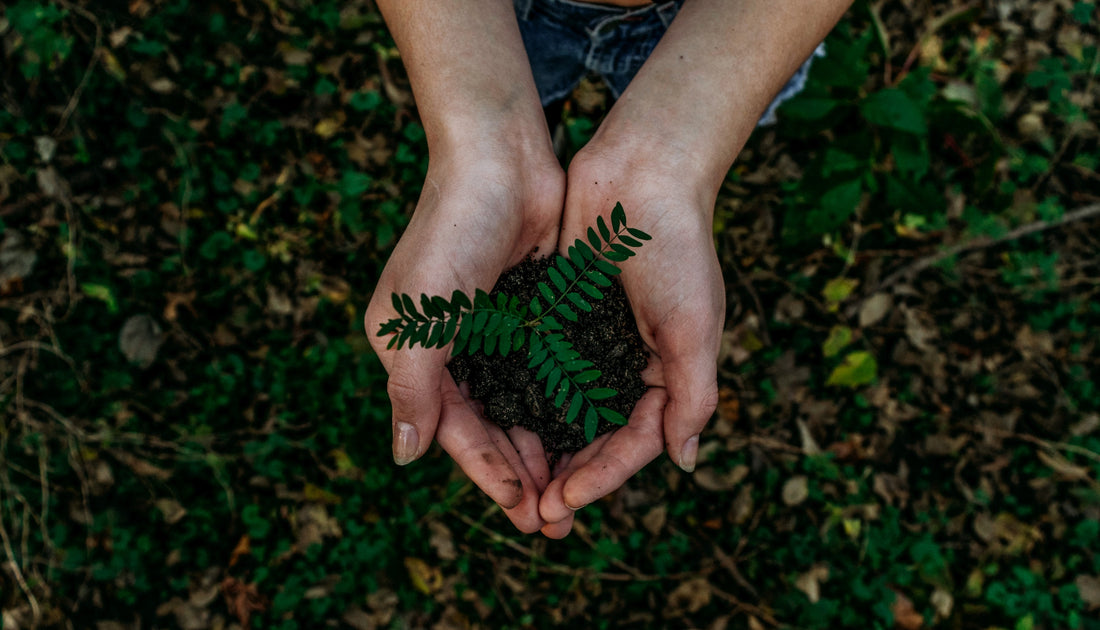Are you recycling? It’s never too late to start! When you make the decision to start recycling, it’s best to start small. Educate yourself on what can and can’t be recycled and ensure your recyclables are washed and free from grease, grime or food waste before you place them in the recycling bin.
Have you ever noticed the small recycling symbol located on your plastics, bottles and containers that have a number in them? Well, this number identifies the type of plastic it’s made of, which identifies whether or not this product is recyclable. Most types of plastic are in fact recyclable, but it’s important to understand which types can go in your curbside bin and which need to be taken elsewhere. If plastics are not recycled properly, they head straight to landfill.

Here at We Are Feel Good Inc. we understand that it’s hard to cut plastic out of your life entirely. In fact for us, plastic is necessary! In Australia it is a TGA requirement that all therapeutic goods are sold in either glass, aluminum, or ‘food grade’, virgin plastic. To date, we haven't found a suitable alternative to the ‘food grade’, plastic packaging we currently use, however our bottles and lids are 100% recyclable once used. Read about our Recycling Program and return your empty We Are Feel Good Inc. packaging with us for free. Not only will you receive 10% off your next order with us, but you will be helping us close the loop on a circular economy!
We also understand that recycling isn’t always practical for most people, so our goal is to offer simple tips and recommendations towards a greener future.
First tip, is to look for what type of plastic (#’s 1-7) your piece is.

PET (1): Polyethylene terephthalate
PET is mostly seen in disposable drink bottles and food packaging for its ability to keep oxygen out and carbonation (CO2) in. It’s also used to make many common household items such as jars, combs, bags, carpets and ropes. PET is commonly recycled.
*Curbside bin ✅

HDPE (2): High-density polyethylene
HDPE is a very safe plastic to use and for that reason, is widely used. Items made from this type of plastic include milk & juice containers, laundry detergent, shampoo bottles and bleaches. HDPE is commonly recycled as they are easy to sort and clean. *PS - Your We Are Feel Good Inc. bottles are made from HDPE.
*Curbside bin ✅

PVC (3): Polyvinyl chloride
PVC is often used for pipes and tiles, most commonly plumbing pipes. It can be used for types of spray bottle detergents like window cleaners, faux leathers, cable covers and other building materials. It is considered to be toxic & hard to recycle, and is most often not accepted by recycling facilities.
*Curbside bin ❌

LDPE (4): Low-density polyethylene
LDPE categorises most soft plastics such as grocery bags, bread bags, plastic food wrap and squeezable tube bottles. These items are not suggested for your curbside bin, however *Precious Plastics Margaret River can recycle this material. Another company, REDcycle, has partnered with many leading Australian grocers such as Coles & Woolworths to assist in the collection of these plastics for proper disposal. Refer to the REDcycle website to learn more.
*Curbside bin ❌
*We Are Feel Good Inc. tubes X Precious Plastic Margaret River ✅

PP (5): Polypropylene
PP is one of the most commonly available plastics on the market. Items made from this plastic include drinking straws, tupperware, butter/margarine containers, and most often bottle caps.
PS - Your We Are Feel Good Inc. bottle lids are made from PP.
*Curbside bin ✅

PS (6): Polystyrene
PS, aka Styrofoam, is most commonly used for takeaway food containers. It can be recycled, but as it takes a lot of energy to break down, few places accept it. It can also be found in plastic cutlery, packing materials and bike helmets.
*Curbside bin ❌

Other (7): Mixed Plastics
Number 7 accounts for all other plastics not found in #’s 1-6. Many products can be made of a combination of plastics, often including ABS, Acrylic or Polycarbonate (PC). These products include anything made from 3D printers, baby bottles, LEGO products and computer keyboards. These plastics are hard to recycle as they are often not labelled.
*Curbside bin ❌
Memorising all 7 types of plastics can be overwhelming, but that's what the logo is for! The better we are at separating our plastics by type and disposing of them correctly, the easier we make it on our sorting facilities to keep them out of landfill. Learning what can and can't go in your curbside bin will help kick-start your journey to a greener future.
Whether you consider yourself a novice or an eco-warrior, you shouldn’t underestimate the impact of recycling. Take baby steps!


